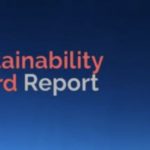Not so long ago green issues were commonly associated with fuzzy public relations gestures rather than cold, hard numbers. But as companies increasingly accept the need to tackle climate change, the focus has shifted to technical measurements.
Enter the accountants, and what observers say is nothing less than a sea change in thinking in the past year and a host of initiatives on what to report and, more importantly, how to measure it.
No longer is this an issue you can delegate to a function that works offline. It is mainstream and the responsibility of the CFO and CEO, says David Phillips, senior corporate reporting leader at PwC.
Roger Adams, head of technical services at the Association of Chartered Certified Accountants, adds: The Stern report lit the fuse and Al Gore was the rocket once that fuse was lit.
This week, that view will be further reinforced with the publication of a report by the Prince of Wales Accounting for Sustainability project, which will focus on how to embed sustainability considerations into general corporate thinking, but also on how to report these efforts.
This is a report that says: Here is where we are, these are the issues and this is what we suggest you begin looking at,  says Richard Reid, UK vice-chairman of KPMG and a member of the AfS project board.
What has been really interesting is the amount that is happening in business and government and trying to pull all that together there had been a concern that sustainability was being talked about a lot, but that it might just be lip service.
According to research by Deloitte, the number of FTSE 100 companies producing a standalone corporate responsibility report as opposed to separate reports on issues such as community and environment is at a new peak, more than tripling since 2002 to 69 last year.
But even if companies are getting better at explaining their impact on the environment, they still struggle to come up with numerical targets they can be tested against. Carbon emissions can be measured in different ways, as can energy usage. Moreover, there is no single agreement on what should be included in these measurements.
We need a common language of valuation so the financial implications come through clearly to the global markets, says Mr Adams. We need to do more to engage the financial community its a bastion of short-termism still to be conquered and we need to be talking their language.
But there is a sense of caution in how to proceed. Mr Phillips warns: Rush too quickly into how to measure and how to audit this, and if we get the metrics wrong, well get the wrong behaviours as a result.
Whatever systems are agreed, the work looks like an extra burden on companies. But advocates say there is little choice, given growing public pressure, and they point to the commercial benefits.
It isnt just a nice to have. It is about turning sustainability into a commercial issue and linking it into business strategy. Cutting emissions is a sustainability problem, but it is also an economics issue, says Mr Reid.
Some sectors are further advanced than others. The most advanced tend to be extractive industries such as oil producers and miners, who have long faced public pressure as a result of their clear impact on the environment.
Nearly all the energy, mining and utility groups in the FTSE 100 produce standalone reports. However, almost as many financial and property groups now do likewise a sharp jump from five years ago, when less than a third did.
Even when companies are reporting, there is a further problem in getting then to report in a comparable way. If each uses different measurements, the results are impossible to compare, leaving investors and other stakeholders no better off. This is only multiplied when accountants and businesses are working on a global system.
Its important we get everyone to talk before we end up with so many standards of reporting that we have the tremendous cost of converging them, says Jan Babiak, head of regulatory and public policy at Ernst & Young.
The Amsterdam Global Reporting Initiative is one such group, drawing up guidelines to encourage common reporting standards.
Yet most of the practical efforts are still being done at a national level, hence the Prince of Wales report this week.
It is not as if companies arent already working on this and were not saying this is the Holy Grail of sustainable reporting, said one project worker on the report.
I wish we were there, but this is still just the start.



